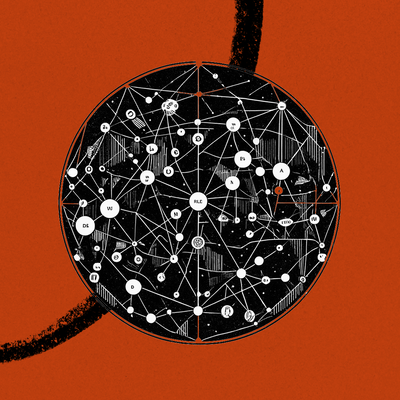
Today we’re releasing a special episode of our podcast AI & I. Dan Shipper sat down with with Kevin Scott, Microsoft's CTO, at the Microsoft Build conference. Watch on X or YouTube, or listen on Spotify or Apple Podcasts. Here's a link to the episode transcript.
Was this newsletter forwarded to you? Sign up to get it in your inbox.
I spent the day yesterday at Club Microsoft (aka Microsoft’s yearly developer conference, Build): a packed purple-lit rave, filled with event staff waving glow sticks like air traffic controllers, playing music so loud I could feel my chest cavity vibrating to a four-on-the-floor remix of Neil Diamond’s “Harvest Moon.”
Halfway through the set, CEO Satya Nadella stepped onto the keynote stage and shipped a live commit with GitHub Copilot Agent. Later, Kevin Scott, Microsoft CTO, laid out a manifesto for the “agentic web”: an open internet with agents talking to agents the way browsers talk to servers.
Here’s the thing about Club Microsoft: It’s the busiest club in AI, millions of users deep, but nobody in the hype cycle brags about going. It’s also quietly the center of the whole ecosystem: The company owns a sizable chunk of OpenAI and has its plumbing wired into hundreds of millions of consumer desktops and enterprise customers.
For me, it’s a can’t-miss invite. Here’s what one of tech’s all-time biggest producer of mainstream hits had to say about AI:
Agents are here, but in order to be useful they need access—access to your computer, to other apps, to other agents, and to the internet.
Think about it like this. As I’m fond of saying, frontier models are jet engines. They’re super powerful, but if you drop a jet engine on my doorstep I won’t be able to do much with it. Stick it on a plane and give me a pilot, though, and the equation changes.
As I’ve been writing since 2023, raw intelligence is only one half of the puzzle. Models are only as good as the information they have access to.
And that is Microsoft’s focus: building the plumbing to connect agents to your computer and the rest of the internet, so you can get the best out of the best models on the market.
Here’s what that means:
- Throwing its weight behind MCP. MCP (model context protocol) is an open standard from Anthropic that allows LLMs to interact with other data sources, like X or Y. Microsoft is adopting MCP as a standard inside all of its platforms—including building MCP support into Windows—to make it easy to wire up an LLM into any part of the Microsoft ecosystem, and any application on your computer. (This is a big deal strategically, especially since Apple still locks up everything in Photos and Notes tighter than Bill Belichick locks up during interviews.) (Okay, bad example.)
- Launching NLWeb to make your website chatbot-ready. NLWeb takes your existing website and makes it easy to consume for chatbots by automatically creating structured data from your site that they can parse. It’s an old idea from the Semantic Web reborn in the AI age, so your users can access the information on your website more easily inside of their AI experiences.
- Building the “runtime” layer for agents. Microsoft will be building components that are necessary for agents to function well: memory, permissions systems for data access, and tools that allow agents to take action on your behalf.
The company is building all of the above as a way to promote an open AI ecosystem rather than a vertically integrated one. Satya Nadella and Kevin Scott spent a lot of time extolling the virtues of an open system for agent interoperation that mirrors the web, rather than a walled garden owned by a single player. The bet is that this will foster lots of new startups that adopt its infrastructure and tools like Windows, AI Foundry, and Azure.
Github Copilot gets an agent
The other big launch at Build was Github Copilot’s new agent, which is available now to everyone.
Github has been on the AI coding bandwagon since before ChatGPT came out, but despite having 15 million users for Copilot, it remains pretty far outside of the conversation on next-generation coding tools. Its huge audience consists mostly of traditional developers and enterprises, which limits how much risk it can take and how fast it can move.
Copilot agent is designed to fix that—allowing you to build features and fix bugs with an agent you can communicate with right inside of Github, where you’re already doing a lot of your developer work. It’s powered by Claude Sonnet 3.7 instead of an OpenAI model, which is particularly interesting given OpenAI’s Codex launch last week.
We’ll have a vibe check on soon, and next week we’ll publish an interview with Github CEO Thomas Dohmke, where we talk through their strategy in more detail.
Reason #435 why I love this job: I get to talk to Microsoft CTO, Kevin Scott, once a year
I got to interview tech’s most likable executive, Microsoft CTO Kevin Scott, for the second year in a row at Build. We talked about his vision for the agentic web, his passion for craft—whether that’s the code he writes, or the ceramics and bags he hand-makes in his spare time—and how coding changes in a world with programming agents. You can watch on X or YouTube, or listen on Spotify or Apple Podcasts.
Speaking of bags, here’s how I found out he makes his own by hand.
Why Kevin Scott is not like you and me—he’s way cooler
Let me set the scene: I’m standing silently and slightly too close to Kevin Scott before we’re about to do our interview.
You know when someone important is standing next to you, and you feel like you should make conversation?
But it feels like there’s a force field between the two of you, so you say to yourself, “No, I shouldn’t bother them,” but then you think, “I’m about to interview him on my podcast—this is my goddamn job,” but then your brain feels like a vast empty landscape ringed with a tall electrified fence reading “NO INTERESTING THOUGHTS ALLOWED” and you feel like you couldn’t even remember your name if you wanted to?
Anyway, I was standing in the personal space of Microsoft CTO Kevin Scott, waiting the interminable minutes until we could start recording, when my producer Vivian noticed a white bag on the table in the middle of the table where we’re about to shoot.
“Can we move this bag? Whose bag is this?” I asked with an air of authority, grateful to have something to do.
I assume it’s very-nice-and-impeccably-dressed-Bonnie-from-PR’s bag. Wrong. “That’s Kevin’s,” she says. “He makes bags. He made this one.”
It’s Kevin’s bag. But it’s also Kevin’s bag.
“Have you ever thought about starting a D2C brand and selling these?” I say, glad to finally have something relevant to say.
“I do,” said Kevin Scott, Microsoft CTO. “I’m on the Shopify board, so I figure I should use the product.”
This, I think, is the perfect encapsulation of Kevin Scott, Microsoft CTO. Like some sort of homespun Adam Savage meets Barbarians at the Gate. He’s just a regular guy who makes bags and ceramics in his spare time, recognizes by sight the make and model of the boom mics your crew is using, and waxes poetic about the time he used to be into portrait photography. He’s also quietly architecting the biggest AI infrastructure and ecosystem in the world.
You should listen to or watch our interview:
Dan Shipper is the cofounder and CEO of Every, where he writes the Chain of Thought column and hosts the podcast AI & I. You can follow him on X at @danshipper and on LinkedIn, and Every on X at @every and on LinkedIn.
We build AI tools for readers like you. Automate repeat writing with Spiral. Organize files automatically with Sparkle. Write something great with Lex. Deliver yourself from email with Cora.
We also do AI training, adoption, and innovation for companies. Work with us to bring AI into your organization.
Get paid for sharing Every with your friends. Join our referral program.
The Only Subscription
You Need to
Stay at the
Edge of AI
The essential toolkit for those shaping the future
"This might be the best value you
can get from an AI subscription."
- Jay S.
Join 100,000+ leaders, builders, and innovators

Email address
Already have an account? Sign in
What is included in a subscription?
Daily insights from AI pioneers + early access to powerful AI tools











Comments
Don't have an account? Sign up!
Always think MS is a bit undervalued by everyone but also catch myself thinking that here and there. I love their open approach though and that's something that is rarely seen by big tech.
On another note, I wish I could have an Every MCP so that I could just talk to podcasts and media etc as I don't always find time to watch all this incredible content.